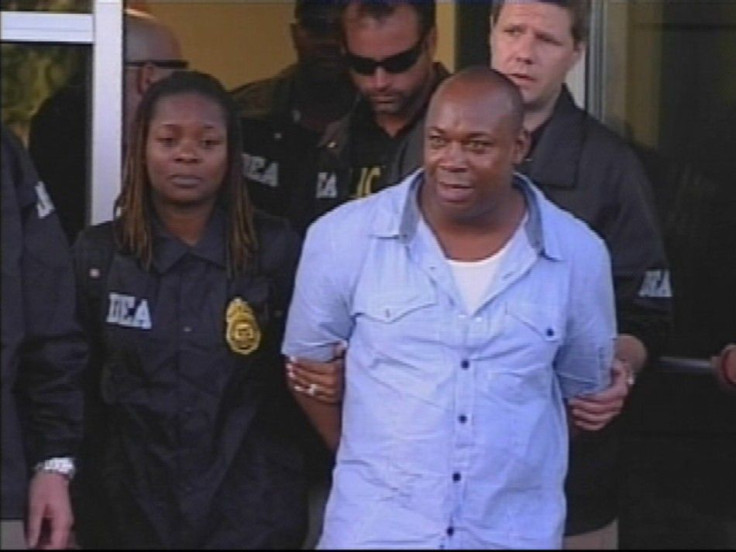Jamaican Drug Lord Christopher ‘Dudus’ Coke Asks Judge for Leniency

A judge received a seven-page letter from Jamaican drug lord Christopher 'Dudus' Coke asking for leniency after pleading guilty to racketeering and assault charges in August.
The New York Times got a copy of Cokes' letter, which it describes as long, neatly handprinted, and polite. It was sent to Judge Robert P. Patterson Jr. of the Federal District Court.
Good day to you, sir, the letter began. I am humbly asking if you could be lenient on me.
Coke has admitted to leading an international crime ring from a Kingston garrison where he moved guns and drugs between the Caribbean island and the United States, according to prosecutors.
Coke is also accused of delegating murders, shootings and at times beatings, according to reports. He was arrested last year and sent to Manhattan and is now facing 23 years in prison.
Coke also listed 13 reasons why he shouldn't get the maximum sentence he is facing.
Among those reasons Coke wrote were that he recently lost his mother.
I was told that while she was on her deathbed, she was crying and kept calling my name, The Times reported about the letter.
Coke also told Patterson that his 8-year-old son was left traumatized by his arrest
I was told that he is constantly asking for his daddy, Coke wrote. He cries all the times since I am gone.
Coke also told the judge that because is also facing deportation, he wouldn't be able to see his relatives living in the U.S. He also spoke about his charitable deeds and social services done in the Kingston community he led, which included providing back-to-school treat for students and organizing a parent committee.
© Copyright IBTimes 2024. All rights reserved.












